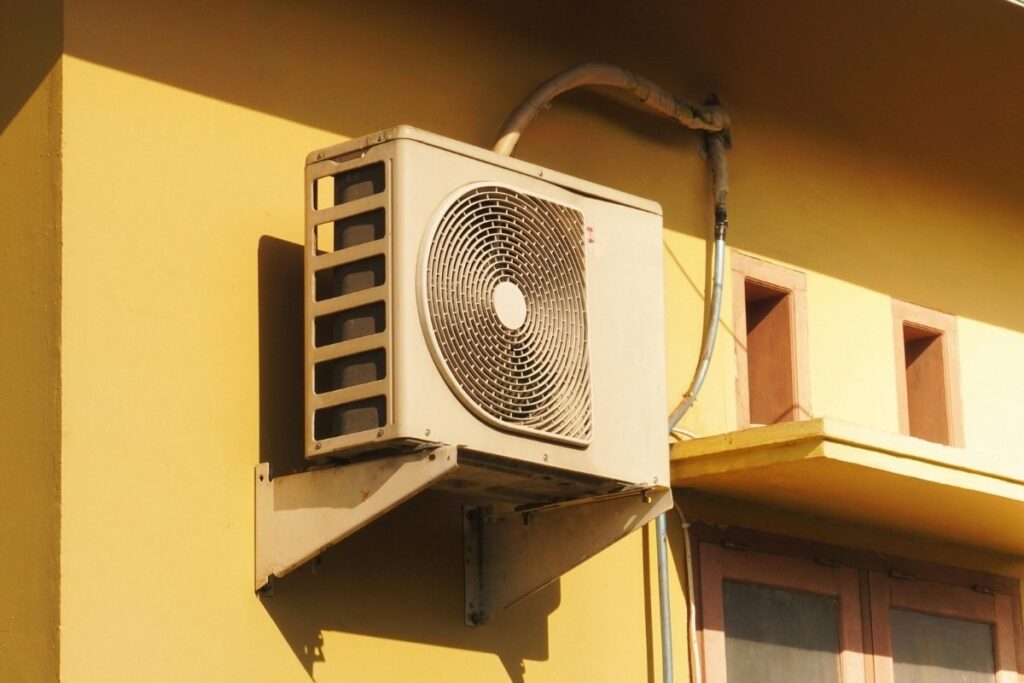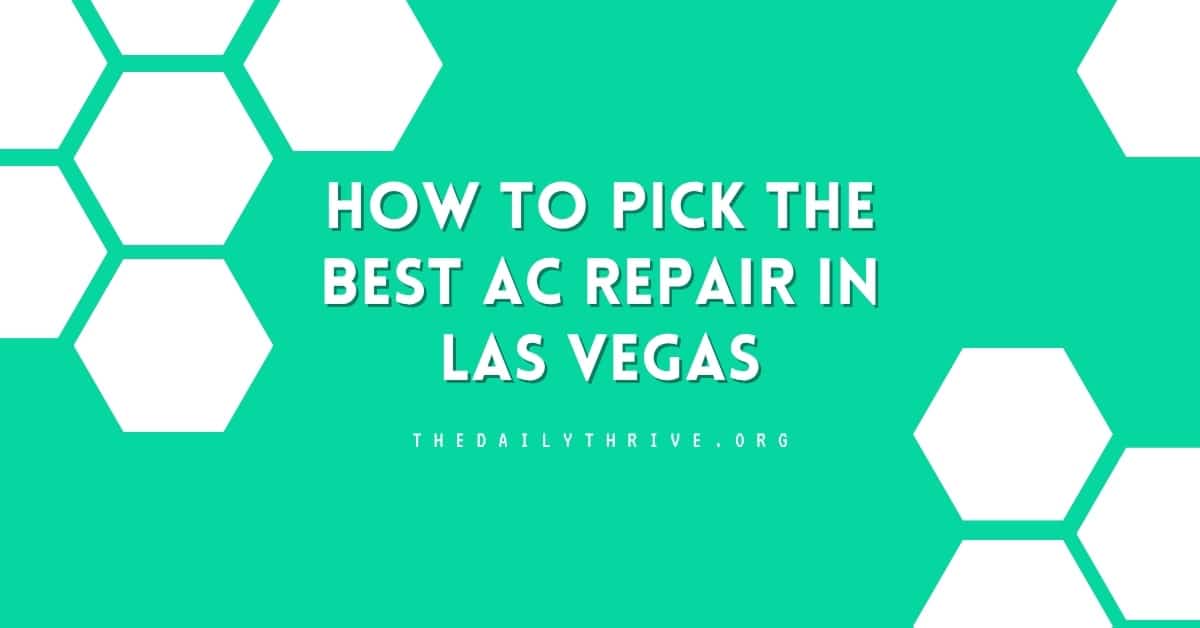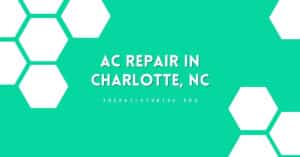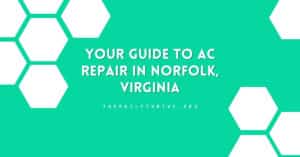In the heart of the Mojave Desert, Las Vegas, Nevada is no stranger to scorching summers, often reaching temperatures above 110°F. Whether you’re a homeowner, renter, or property manager, a reliable and efficient air conditioning system is critical—not only for comfort but also for health and safety. When your AC fails in Vegas, the clock is ticking. This guide delivers everything you need to know about AC repair in Las Vegas, NV, including technical causes of failure, repair costs, contractor selection, and tips for prevention.
Las Vegas experiences extremely high temperatures, low humidity, and frequent dust storms. These environmental conditions accelerate wear and tear on HVAC systems. The high desert climate creates the following challenges:
- High thermal load on compressors and capacitors
- Low moisture air, which impacts evaporative cooling efficiency
- Dust and debris accumulation on coils and filters
- Voltage drops during peak energy demand periods
Proper AC performance in Las Vegas requires not just cooling but also humidity balance, airflow calibration, and refrigerant management.
You should call for service if you experience:
- AC cycles but fails to cool (ΔT < 16°F)
- Electrical components overheating (measured with IR thermometer)
- Unusual pressure readings (based on PT chart for R-410A)
- System repeatedly trips the breaker
Common Air Conditioning Issues in Las Vegas
1. Compressor Lockout or Overheating
Causes:
- High head pressure
- Undersized suction lines
- Dirty condenser coils
- Inadequate ventilation around outdoor unit
2. Refrigerant Leaks
Causes:
- UV exposure causing deterioration of line set insulation
- Pin-hole leaks in aluminum evaporator coils
- Faulty service valves or brazed joints
3. Blower Motor Failures
Causes:
- Overuse due to high demand cycles
- Motor bearing wear from high heat
- ECM (electronically commutated motor) control board failures
4. Condensate Line Clogs
Causes:
- Dust accumulation forming sludge in drain line
- Lack of float switch or malfunction
- Improper slope of condensate drain pipe
5. Control Board Failures
Causes:
- Power surges during monsoon season
- Loose wire terminals from vibration
- Capacitor failure causing short circuit to board
Certified HVAC techs in Las Vegas should carry:
- Digital manifold gauges
- Clamp amp meters
- Psychrometers for measuring humidity
- Static pressure probes
- Leak detection systems (ultrasonic or electronic)
Average AC Repair Costs in Las Vegas (2025)
| Repair Type | Estimated Cost (USD) | Details |
|---|---|---|
| Diagnostic Service Call | $75 – $120 | Includes refrigerant pressure, amp draw, and airflow checks |
| Capacitor Replacement | $150 – $250 | Dual-run capacitors most common |
| Refrigerant Recharge | $200 – $600 | R-410A systems; includes leak test and recovery |
| Compressor Replacement | $1,200 – $2,800 | Scroll compressors; includes filter-drier change |
| Evaporator Coil Cleaning | $300 – $600 | Important in dusty environments |
| Smart Thermostat Install | $250 – $500 | Includes setup and app configuration |
Selecting the Right AC Repair Company in Las Vegas
Must-Have Qualifications
- Nevada State Contractor License (C-21)
- NATE Certification for technicians
- EPA Section 608 Certification
- Factory Training for brands like Carrier, Lennox, Trane
Service Features to Look For
- 24/7 Emergency Repair Services
- Free or low-cost second opinions
- Membership service plans for regular maintenance
- Transparent, flat-rate pricing
Reviews and References
Check reviews on:
- Yelp
- Better Business Bureau
- Angie’s List
Look for consistent comments on technician professionalism, prompt response, and long-term repair quality.
Preventive Maintenance Tips for Las Vegas Homeowners
Regular maintenance is crucial in the Vegas climate. Here’s what to do:
- Change filters monthly (MERV 8–13 recommended)
- Clean outdoor condenser coils every 6 months
- Flush condensate drain lines seasonally
- Lubricate blower motor bearings if non-sealed
- Check thermostat calibration annually
- Seal ductwork to prevent cooled air loss
Las Vegas-Specific HVAC Challenges
If you’ve lived here more than a summer, you already know one thing: our air conditioners work harder than just about anywhere else in the country.
Between the scorching sun, blowing dust, and sudden monsoon storms, your HVAC system isn’t just keeping you cool — it’s fighting a daily battle against the elements. As a professional HVAC contractor, I want to walk you through the three biggest challenges we face here in the valley — and how you can protect your system and your comfort year-round.

Desert Dust
First up: desert dust.
If you’ve ever wiped down your furniture and found a fine layer of red dust after a windy day, imagine what that same dust is doing inside your air conditioner. Over time, it clogs up your filters, coats your evaporator and condenser coils, and forces your system to work harder — which means higher bills and shorter equipment life.
My advice? Upgrade to a high-efficiency pleated filter or a reusable washable pre-filter. Change or clean it every 30–60 days, especially during peak season. And don’t skip your twice-yearly coil cleaning — once in spring before summer, and again in the fall. A clean coil can improve efficiency by up to 30%, and trust me, your AC will thank you.
Monsoon Season Surges
Next, let’s talk about monsoon season — those sudden afternoon thunderstorms that roll in out of nowhere.
While rain is rare here, when it hits, it hits hard. That means flash floods, power surges, and clogged drain lines. I’ve seen more than a few air handlers fried by electrical surges during a storm. The fix? Install a whole-home surge protector, and make sure your outdoor unit and indoor air handler are both protected. It’s a small investment that can save you thousands in repair costs.
Also, install float switches on all your drain pans — especially in upstairs units. These little devices shut off your AC if the drain line backs up, preventing a water leak that could damage your ceilings and walls. I recommend this for every home — it’s a must-have.
Extreme Solar Load
Finally, extreme solar load.
The sun here doesn’t just shine — it bakes your home. Roof temperatures can hit 160°F, turning your attic into a convection oven. That heat soaks into your home, making your AC work overtime.
The solution? Proper attic insulation — at least R-38 — and radiant barrier or reflective roof coatings. Also, consider applying UV-protective window film or using solar shades. These steps don’t just reduce heat gain — they can cut your cooling costs by 20% or more.
In Las Vegas, your HVAC system needs extra love. With the right filters, surge protection, insulation, and maintenance, you’ll stay cool, save money, and extend your system’s life.
High-Efficiency AC Brands in Las Vegas
Homeowners often choose:
- Trane XV20i – Variable-speed compressors, SEER up to 22
- Carrier Infinity – Excellent humidity control, Wi-Fi thermostats
- Lennox XC21 – Quiet operation, solar-ready systems
- Bosch IDS – Inverter-driven for low energy bills
- Goodman GSXC18 – Reliable and budget-friendly
Emergency AC Repair Protocols in Las Vegas
Technicians should follow these steps:
- Initial Diagnostics
- Verify voltage at disconnect
- Measure static pressure drop
- Evaluate ΔT (supply vs. return air)
- Component Testing
- Test capacitor ratings
- Clamp motor amperage
- Pressure check on suction and liquid lines
- Final Evaluation
- Assess insulation condition on line set
- Check for vibration wear or contact
- Calibrate thermostat set points
Emergency service should prioritize:
- Homes with vulnerable occupants
- Units with severe refrigerant loss
- Systems tripping breakers repeatedly
Local Rebates and Incentives
Southern Nevada’s power providers—NV Energy—offer rebates for:
- High-SEER AC unit replacements
- Smart thermostat installations
- Duct sealing and insulation upgrades
Check eligibility and application process at nvenergy.com
In Las Vegas, an air conditioning system isn’t a luxury—it’s a lifeline. With the intense desert heat, HVAC systems must be high-performing, properly maintained, and repaired by trained professionals.
From capacitor swaps to full compressor rebuilds, understanding your system’s needs and working with licensed, NATE-certified pros ensures you won’t be left sweating when the mercury rises. Prevention, precision, and professional service are the keys to comfort in the City of Lights.
Need help comparing estimates or creating a maintenance plan? Just ask—I’m here to guide you every step of the way.






